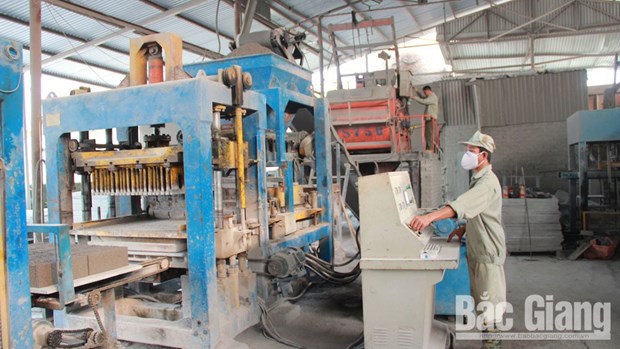
Located in the northern key economic zone and adjacent to major centres such as Hanoi, Hai Phong city, and Quang Ninh province, Bac Giang boasts favourable conditions for economic development.
A particular focus of biotechnology and new material technologies is the fields of breeding, preserving, and processing agricultural and forestry products, especially key products such as lychee, Yen The chicken, Yen Dung fragrant rice, Lang Giang mushrooms, Tan Yen peanuts, Hiep Hoa grapefruit, and Son Dong honey; the treatment of waste and wastewater in industrial zones and clusters and trade villages; and health and medical surveillance technology.
The province is also stepping up the application of advanced materials and fuel-saving and environmentally-friendly technologies in production and daily life.
It prioritises developing science and technology, especially biotechnology and new material technologies, supporting the establishment of and improvements to the operational efficiency of science and technology enterprises, innovative enterprises, and start-ups in the fields of information technology, biotechnology, and new material technologies.
Meanwhile, the provincial centre for science and technology application will form an experimental area and conduct research and application and transfer biotechnology and new material technologies.
Over recent years, the strong application of biotechnology has had a positive impact on the province. Its Department of Science and Technology has deployed 91 national and provincial level projects to date in the field of biotechnology, which has been applied to develop high-yield, good-quality crops and animals and contributed to economic restructuring, improving the quality, commercial value, and competitive edge of local agricultural products. By way of example, the breeding and development of new fruit trees such as V2 orange, ODL guava, MC17 and Choquete avocado, late ripe longan, and early thieu litchi have yielded hundreds of billions of VND a year.
Bac Giang has also applied VietGAP and GlobalGAP standards in cultivation at 39 percent of orchards and used QR Codes for tracing product origin, together with the iMetos smart weather station, the VietGAP app, and drip irrigation technology.
The province has recently expanded its VietGAP-standard lychee coverage to 14,300 ha and its GlobalGAP-standard coverage to 258 ha. It also has 218 ha of lychee with cultivation codes granted for export to the US, Australia, and the EU.
Using drip irrigation technology, biological fertilisers, and pesticides, and following VietGAP standards, a tea production model in Yen The district has posted a 20-30 percent increase annually in productivity and revenue. The success of the model helped expand the district’s tea growing area to 530 ha, with a combined output of over 4,300 tonnes a year.
Many local enterprises have applied biotechnology in pollution treatment and environmental pollution recovery. The application of biotechnology in socio-economic development contributed to economic growth in the province averaging 14% per year in the 2015-2020 period. It currently has more than 160 enterprises and household businesses operating in the production of building materials applying new material technologies, including the production of unfired bricks.
The province has received and transferred technology from many projects to produce plywood using new technology.
In the field of medicine, new material technologies have also made a positive contribution to local medical examinations and treatment, such as the application of nanopolymer in medicine and nanomaterials in biomedicine. Their application has also contributed to medical examinations and treatment of local people.
Bac Giang implemented 74 national and provincial science and technology projects in various fields during the 2015-2020 period, with total funding of over 222 billion VND./.

 Previous page
Previous page Back to top
Back to top







